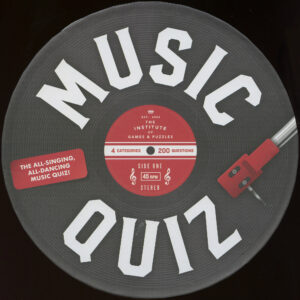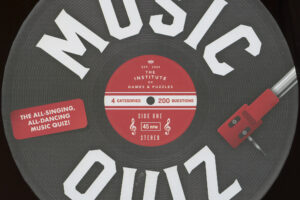On Monday, TDMB featured Gioacchino Antonio Rossini’s “The Barber osf Seville,” so it seems to make sense to follow it up with Ian Dury and the Blockheads.
AllMusic has an affectionate profile. Here is the start:
Rock & roll has always been populated by fringe figures, cult artists who managed to develop a fanatical following because of their outsized quirks, but few cult rockers have ever been quite as weird, or beloved, as Ian Dury. As the leader of the underappreciated and ill-fated pub rockers Kilburn & the High Roads, Dury cut a striking figure — he remained handicapped from a childhood bout with polio, yet stalked the stage with dynamic charisma, spitting out music hall numbers and rockers in his thick Cockney accent. Dury was 28 at the time he formed Kilburn, and once they disbanded, conventional wisdom would have suggested that he was far too old to become a pop star, but conventional wisdom never played much of a role in Dury’s career. Signing with the fledgling indie label Stiff in 1978, Dury developed a strange fusion of music hall, punk rock, and disco that brought him to stardom in his native England. Driven by a warped sense of humor and a pulsating beat, singles like “Hit Me with Your Rhythm Stick,” “Sex & Drugs & Rock & Roll,” and “Reasons to Be Cheerful, Pt. 3” became Top Ten hits in the U.K., yet Dury’s most distinctive qualities — his dry wit and wordplay, thick Cockney accent, and fascination with music hall — kept him from gaining popularity outside of England. After his second album, Dury’s style became formulaic, and he faded away in the early ’80s, turning to an acting career instead. (Continue Reading…)
Actually, the mention of “a childhood bout with polio” is understating things. Dury was badly disabled, and it’s a testament to his talent, perseverance and sense of humor that he rose to prominence. It’s really terrific: Ian Dury’s campy fun probably had the deeper meaning of being a triumph against despair. I don’t know enough to say this definitively, but it is a nice thought. Check out this moving interview with British talk show host Michael Parkinson.
Dury was a great writer who is responsible for the iconic phrase “sex and drugs and rock and roll,” which comes from the song of the same name:
Sex and drugs and rock and roll
Is all my brain and body need
Sex and drugs and rock and roll
Are very good indeed
Above is “Hit Me With Your Rhythm Stick” and below is “Reasons to be Cheerful (Part 3).” The evidence here shows that The Blockheads were quite a band as well. The video above notes that “Rhythm Stick” became the top song (in the U.K., I believe) in 1979. The funny thing is that it replaced The Village People’s “Y.M.C.A.”









